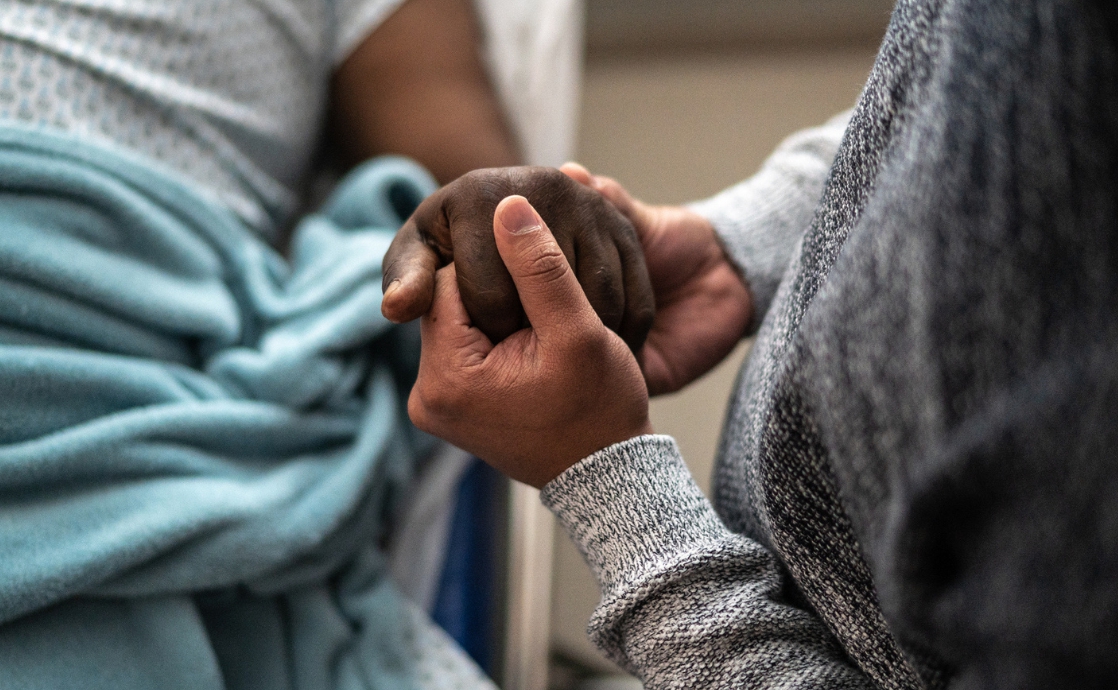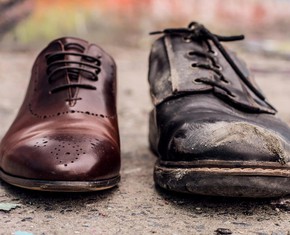The views expressed in our content reflect individual perspectives and do not represent the authoritative views of the Baha'i Faith.
The Baha’i teachings assure us that God doesn’t expect perfection – He just wants us to try. In his writings, the prophet and founder of the Baha’i Faith, Baha’u’llah, clarified:
How high is the soaring flight of the phoenix of love, and how low the requisite measure of our yearning! Strive but a little to soar, that, by the grace of Him Who is the eternal King, thou mayest ascend from the dust-heap of utter non-existence unto the loftiest heights of ancient glory.
When I prepare to leave this “dust-heap” of the material world, I’d love to have a good friend nearby praying for my success and steadfastness during such a momentous time.
RELATED: My Friend George’s Death: The Ultimate Final Exam
Further, in thinking about facing God, I would like not to despair when I’m wondering, “Are you pleased with me?”
Plus, beyond the person dying, there are the closer loved ones to think of. Might not the burning grief of anticipated separation, at times, overwhelm? Perhaps then one person with a gaze fixed on celebrating a life well-lived can supply balm for some of that grief, with double benefit, as Baha’u’llah wrote:
Therefore think not that he hath perished. Indeed he will endure in the heavenly kingdom as long as God Himself endureth. And this calleth for gratitude, not grieving. When he findeth that thou art happy he becometh more cheerful, but when he perceiveth that thou are disconsolate, this provoketh anguish in his heart.
So, both for the one dying and the ones left behind, it can help to have a good friend at your bedside.
Late in August, I heard that my dear friend George was nearing death. My wife Ellen and I drove to Rutherford County. We intended to stay for a day or two, long enough to say our goodbyes, and hopefully for one good conversation between close friends.
But this wasn’t just a casual visit, and a couple of portents reminded us of its significance. As we arrived, while paying for gas at a convenience store, I was greeted with “Bill, what are you doing here?” It was Robert. He recognized me after more than 10 years, behind a mask, in an area with a population in excess of 332,000, and with no reason to think I was in town.
Though Robert hadn’t heard about George’s condition, he told me he and George had been close friends from before I knew either of them, more than 40 years prior. He said they would attend spirited Black churches together, George boasting “his big ol’ Afro in those days.” Robert and I shared other thoughts and news. I felt George’s spirit was busy spreading love around among his friends. It also reminded me that George’s closeness to God was bigger than I knew and older than his learning of the Baha’i Faith.
Another suggestion that this was more than a casual visit – George asked me to help put his affairs in order. That’s a big deal, because he wanted to provide for his loved ones in a particular way that could not possibly have been carried out without a written plan. Working with George’s eldest son, an exemplary young man, we were able to accomplish it in accordance with George’s wishes.
After about a week, Ellen and I drove home.
RELATED: Visiting a Dying Friend: When We Pass Into the Next World
On the phone a couple of weeks later, George brimmed with joy. He had just talked in depth to one of his relatives for the first time about the solutions he believed she’d find in the Baha’i Faith. Here is where George’s heart lay! He yearned for long-term happiness for his loved ones, happiness he was sure they could find in Baha’u’llah’s teachings. To say George never pushed his beliefs on others is an understatement; he strongly respected individual agency. But he was excited that his relative had, this time, wanted to listen to his testimony. He called me to share his excitement.
George grew up in a Black family with few material goods, the youngest of 13 children. George was five years old when his mother became a widow, and she did not remarry. They lived in rural Tennessee and George grew up farming and picking cotton. They attended segregated schools. Severe dyslexia compounded his learning obstacles, as did low expectations; his teachers told him he would never even finish high school. Overcoming all, he earned a college degree, became a teacher, completed 30 more hours of advanced education, and worked for years as an assistant principal. In his work and personal life, he always strived to rise above the difficulties and racism he had to endure.
Besides taking care of himself and his loved ones, George worked tirelessly to counter the effects of racism. Here’s one example among many: George – with close friends who were also professional and also Black – pondered together how to provide better paths for education, vision, and training for professional careers for young Black people. They started a fund for a scholarship to be given to the most academically outstanding Black graduating high school senior, with most of the funding expected to come from the Black community. Then the Baha’is donated $1,000, the fact of which inspired the local government to a matching donation, and $4,000 was then awarded to the first recipient in 1984. More than 30 years later, over $1,000,000 had been raised and awarded to over 300 Black students in Rutherford County. Every year, except during COVID-19, there has been a banquet to celebrate the achievements of these fine scholars. The fund continues still. (After about 23 years of support in the background, I was elected to serve on its board of directors, the only person not known as Black ever to do so, and later I was elected treasurer.)
That’s the kind of person George was, visionary yet practical in his goals, slow yet steady in his means. George touched countless lives over many decades, including mine. That’s why I wanted, more than anything, to be there with him when he made the profound passage into the sea of light.
















Comments
Sign in or create an account
Continue with Googleor